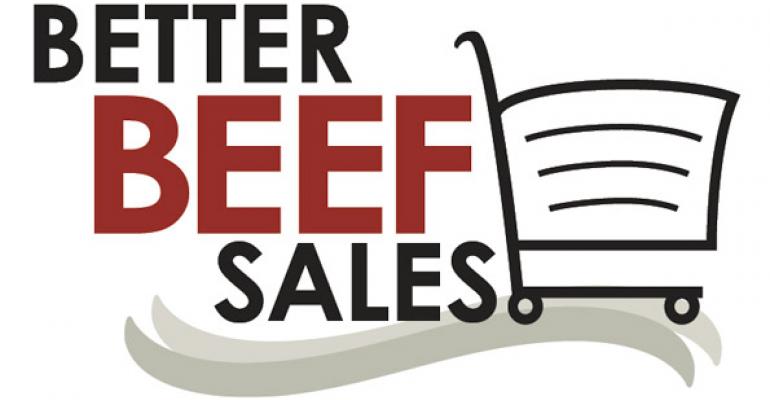DENVER — The National Cattlemen’s Beef Association and the Beef Checkoff Program here have partnered with Merck Animal Health to launch a series of free, web-based retail training videos geared toward boosting knowledge of beef production and other beef-related topics among supervisors, managers and associates at the store level.
The “Better Beef Sales” training program, available at NCBA’s beefretail.org website, includes six web-based modules, covering topics including sustainability, modern beef production and maximizing value in the meat case.
Mike Loftus, director of meat and seafood for Raley’s Supermarkets, noted the importance of ongoing training for store-level staff, especially in service departments. He’s planning to have all of Raley’s supervisors train meat department managers using the new tools.
Training tools are “very important, especially easy-to-use tools like this,” he said. “I wish that we had a better portal system at the stores so that we could [show them] to every employee. When you have something like this — web-based training — it makes it much easier to get done.”
The videos were produced after veterinary supplier Merck Animal Health sponsored a series of four consumer panels in two separate markets to get a sense of consumer perceptions of meat departments, beef and the beef industry.
 The program offers six training modules for store-level meat department staff.
The program offers six training modules for store-level meat department staff.“Those were very focused on understanding the beef consumer — understanding what the consumer knows and doesn’t know, what they may believe about beef and the beef industry in general,” explained Kyle Pfeiffer, account manager for Food Chain Affairs at Merck Animal Health. “Our goal was to get those insights and … really know how to better communicate with the consumer.”
Pfeiffer noted that some of the insights gleaned from these panels were very simple. For example, rather than using the term “conventional beef” to describe beef that isn’t organic or all-natural, the term “traditional beef” resonated better with shoppers. And, surprisingly, shoppers preferred the term “farmers” rather than “ranchers” when hearing a description of how beef was raised.
“It’s simple things like that that we don’t typically think of as an industry,” he said.
The panels also indicated that shoppers have a lot of questions when they look at the vast array of products available in the typical supermarket meat case.
“Sometimes they’re confused, whether it’s different types of labels they see, or the differences between natural and organic or grain fed and grass fed, branded programs, quality grades. There’s a lot of different options, and consumers have questions.”
And when they have questions, they look to the staff members in white coats as experts, whether they are trained butchers or relatively new associates. This makes it vital to have well-trained staff in the department.
“Especially retailers that have case-ready product or something along those lines, where the staff doesn’t have a lot of context or knowledge about the actual product,” Pfeiffer added.
After Merck completed their research, NCBA and the Beef Checkoff program worked with them and with retailers to focus and develop the content of the videos. The six resulting videos offer an overview of the beef industry from the ranch and supplier level to merchandising and value creation at the store level. The interactive, web-based modules also utilize quizzes and downloadable fact sheets to enhance retention after staff have completed each video.
“We definitely agreed with the direction [that Merck took with the program], and the need for continued retailer education and the need for a very targeted retail training program,” noted Trevor Amen, NCBA’s manager of channel marketing. Initial feedback from retailers has been very positive, he added.
“We understand the importance of beef to a retailer’s operation. In a traditional supermarket, beef accounts for over 50% of total meat department sales … It’s one category that contributes a large amount of dollar sales to an entire operation, not to mention the impact that high-quality perishables have on a retailer’s image.”


